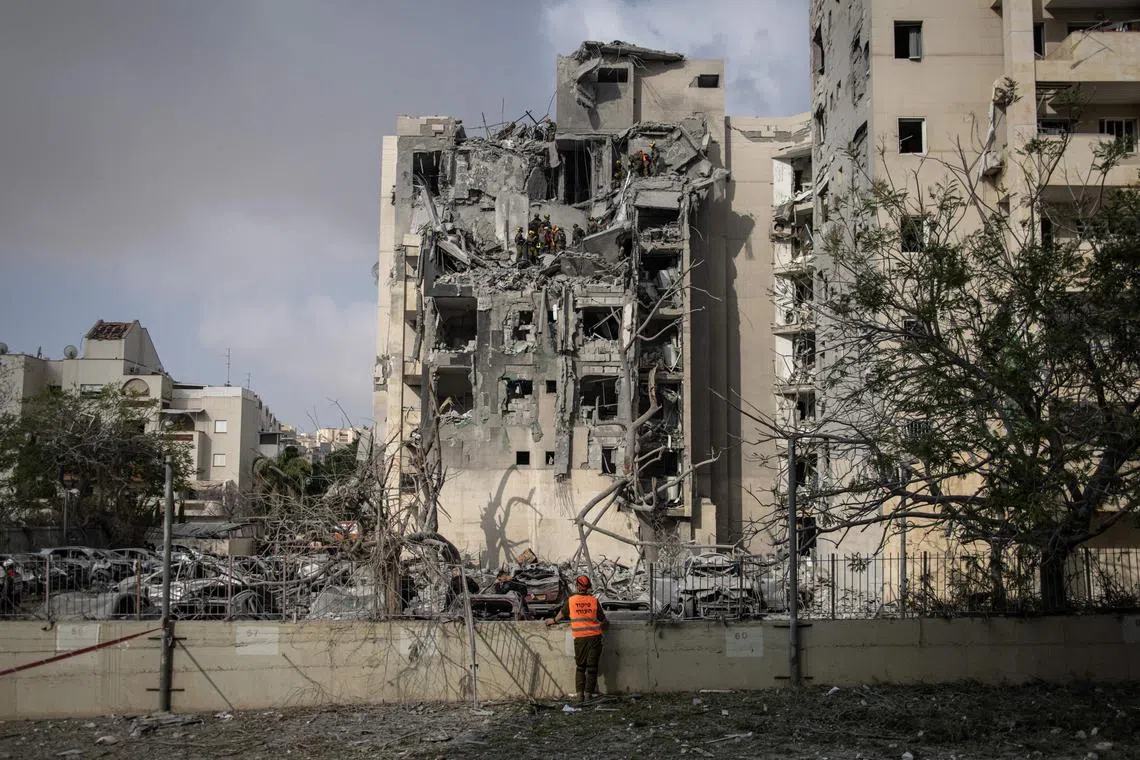For subscribers
Iran’s ‘12-Day War’ leaves plenty of unfinished business
Whether the announced truce holds or not, the fallout will linger, not least the uncertain future of Iran’s leadership and national priorities.
Sign up now: Get ST's newsletters delivered to your inbox

Israeli emergency services and security officers search for casualties in the rubble of a building hit by an Iranian missile in Beersheba in southern Israel on June 24.
PHOTO: AFP
- The "12-Day War" between Israel and Iran has fundamentally altered the Middle East.
- Israel's strike, supported by the US, aimed to cripple Iran's nuclear capabilities, but experts question its success, citing Iran's retained enriched uranium.
- Iran's isolation and internal challenges, coupled with potential hardliner ascendance, create instability, suggesting the current ceasefire is temporary.
AI generated
Regardless of whether the ceasefire between Israel and Iran
None other than the US President, whose country also briefly entered the war, is now praising all the protagonists in equal measure as though the US were just an impartial observer of the proceedings. “God bless Israel, God bless Iran, God bless the Middle East,” Mr Donald Trump wrote on Truth Social, his favourite social media platform.



